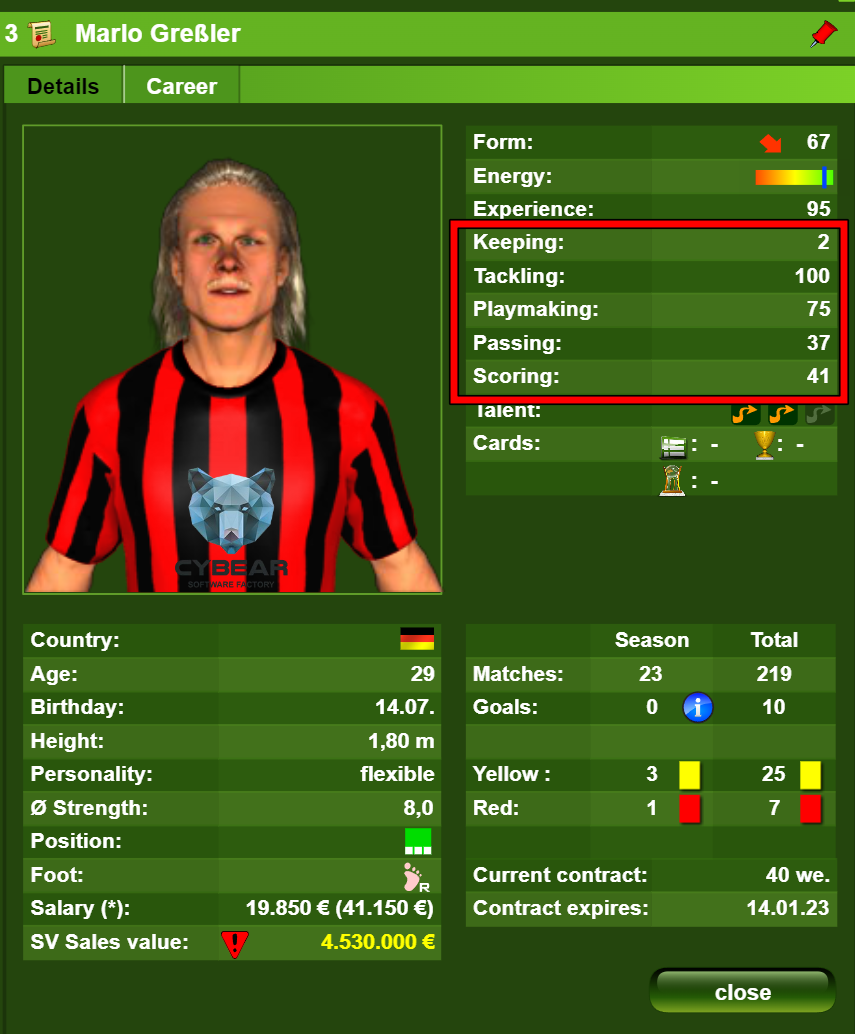By training your players' skills, you can increase them - without training, they will remain at the same level.

There are five different skills:
Keeping - the most important skill for a goalie
Tackling - the most important skill for defenders
Playmaking - the most important skill for central midfielders
Passing - the most important skill for wing players
Scoring - the most important skill for strikers
In training each player trains the skills trained. The effect is high only for their main skill, the others will train slowly. To train other skills more effectively players can be repositioned.
The efficiency of training depends on different factors:
Age
The younger, the better - no effect from training if the player is 32 or above
Experience
trained positions determine the effect of individual training, e.x. a goalie will learn keeping skill faster than a striker
Injuries
Injured players do not participate in training, bruised players will only gain half of the effect. The maximum initial duration of an injury is 40 days.
Energy
The higher the energy, the higher the training effect and the better and longer the performance in matches will be.
Personality
The diligent players will train more efficiently.
Staff
The higher the efficiency of the assistant coach, the higher the effect of the training will be.
Skills
When a player's skill is close to or over 100, it will train slower. This means that improving skills from one to a higher value is getting slower and slower.
Players' skills (Keeping, Tackling, Playmaking, Passing, Scoring) can typically be trained up to 100.
Nevertheless, the skills' limit can be unlocked through special cards up to 115. (max.)
Skills determine how good players will play in certain positions. For example, A striker mostly needs scoring skill. Good playmaking skills also improve their performance, but the effect is much smaller.